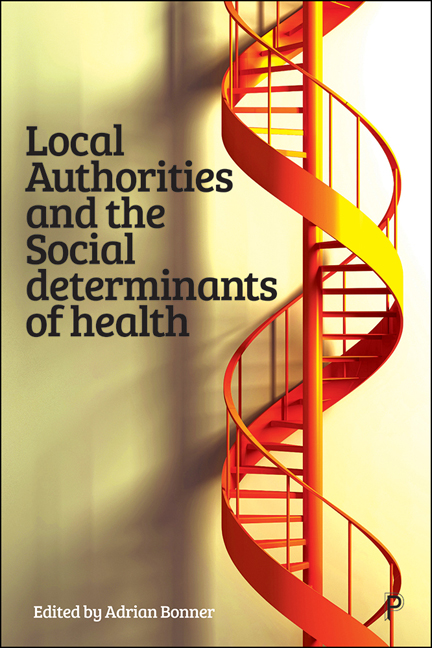Book contents
- Frontmatter
- Dedication
- Contents
- List of Figures, Tables and Boxes
- Notes on Contributors
- Acknowledgements
- Foreword
- Summary
- Introduction: Key Sociopolitical Changes Affecting the Health and Wellbeing of People
- Part I Health, Social Care and Community Wellbeing
- Part II The Role of Local Authorities in Promoting Health and Wellbeing in the Community
- Part III Local Authority Commissioning
- Part IV The Third Sector
- Part V Socio-Economic Political Perspectives
- Conclusion
- Appendix: COVID-19 Timeline
- Index
Introduction
Published online by Cambridge University Press: 25 March 2021
- Frontmatter
- Dedication
- Contents
- List of Figures, Tables and Boxes
- Notes on Contributors
- Acknowledgements
- Foreword
- Summary
- Introduction: Key Sociopolitical Changes Affecting the Health and Wellbeing of People
- Part I Health, Social Care and Community Wellbeing
- Part II The Role of Local Authorities in Promoting Health and Wellbeing in the Community
- Part III Local Authority Commissioning
- Part IV The Third Sector
- Part V Socio-Economic Political Perspectives
- Conclusion
- Appendix: COVID-19 Timeline
- Index
Summary
In the earlier parts of this book, the hard structures needed to support healthy communities were reviewed from the perspectives of health and care integration (Part I), the regional specific responses of local government, impacted by austerity budgeting (Part II) and the changing socio-legal dimensions of procurement and commissioning (Part III).
Part IV acknowledges that local authorities are, increasingly, enablers of change, and recognises the role of the third sector in providing the soft structures that are essential for reinvigorated and healthier communities and individuals (see Chapter 16).
The concept of an ‘enabling state’ was reported by The Carnegie Trust (Wallace, 2013), and describes the shift from a welfare state to an enabling state as being one where the fundamental challenge is creating a new relationship between citizens, communities and the state. The research identified some emerging themes that could contribute to an enabling state:
• Empowered citizens and communities – to use their own capacity to improve community wellbeing and to realise their own aspirations. This could include the community ownership of assets or delivery of services.
A co-production model for public services – citizens able to share local service provision, with influence over their experience of receiving a service.
Success where the state has traditionally failed – supporting communities and individuals to address problems where the state has been unable to respond adequately.
A level playing field – reduce rather than exacerbate inequalities and be effective in recognising and responding to differences in community and individual capacity.
A holistic approach to public service delivery – a joined-up and preventative approach to service delivery.
Shared responsibilities – all parts of society have a role in improving our collective and individual wellbeing: welcome effective partnerships between individuals, civil society, businesses and the state.
The third sector plays a fundamental part in supporting this enabler role and the socio-ecological model (see Figure Part IV.1) proposed by Bronfenbrenner. From a practitioner perspective, this model provides an interesting framework and context against which the role of the third sector can be explored.
Part IV begins, in Chapter 14, with an overview of the commissioning of services by local authorities with regard to the role of charities. The third sector delivers these functions as a key feature of civil society (civil society strategy).
- Type
- Chapter
- Information
- Local Authorities and the Social Determinants of Health , pp. 263 - 268Publisher: Bristol University PressPrint publication year: 2020

